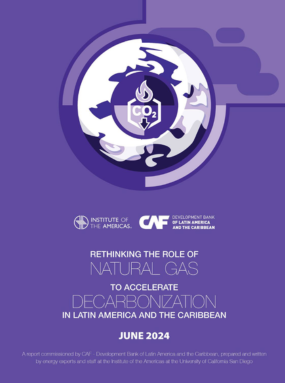Just Energy Transition / Conceptual Framework for the Region
Resumo
The just energy transition in Latin America and the Caribbean seeks to balance the reduction of greenhouse gas (GHG) emissions with economic and social development. This approach, aligned with the Paris Agreement, acknowledges the region's particular characteristics: low dependence on coal, high participation of renewable energy, and significant challenges such as poverty, inequality, and the projected growth in energy demand. The conceptual framework outlines four key objectives: defining the concept of a just energy transition tailored to the region, proposing indicators to monitor progress, assessing the baseline of national energy systems, and developing country-specific strategies. These studies highlight the need for technological, regulatory, and market-based solutions, as well as sustainable financing, to ensure a transition that reduces emissions while improving living standards and strengthening social equity.
Assunto
País / Región
Data
2024Cite esta publicação
Item que pertence à coleção
Autor
Ghazarian, AgustínChampetier, Coline
Quiroga, Darío
Baqueriza, Francisco
Barros, Nicolás
Souilla, Laura
Sanz, Ramón
Gomelsky, Roberto
Salinas, Edgar
Rios, Juan
Cont, Walter
Items Relacionados
Renewed Energies: A just energy transition for sustainable development
This edition of the report underscores the need for a just energy transition in Latin America and the Caribbean, considering the realities of each country ...
Just Energy Transition / Scenarios Brazil
The energy transition is a key challenge for Brazil, a country with vast energy resources and a strategic role in the global climate agenda. This report ...
Rethinking the Role of Natural Gas to Accelerate Decarbonization in Latin America and the Caribbean
It has become quite apparent that the global community must escalate the broad deployment of commercially available clean energy technologies and sources ...




